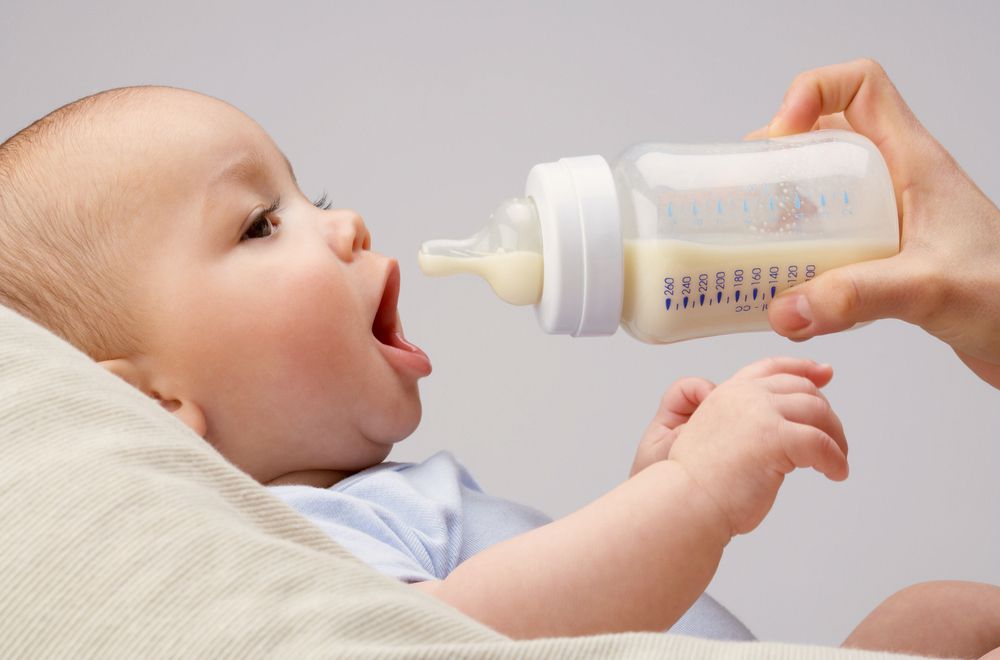
Worldwide, the formula has become a common commodity among lactating mothers where you don't have to be undergoing certain health conditions that limit you from breastfeeding your infant. Specific health condition such as being on medications a health physician restricts you from breastfeeding or having suffered from Human Immune Deficiency Virus (HIV), it’s well-advised to at least breastfeeding your child for six months. With it being readily available in nearby stores and outlets, baby formula has brought about a lack of breastfeeding, which is disadvantageous to toddlers, despite different procedures containing different nutritious ingredients defined by age limit and protein levels. Breast milk contains similar nutrients to formula. However, breast milk tends to contain more helpful proteins that boost immunity in infants.
New mothers' chats and conversations on breastfeeding have made some women feel breastfeeding is optional to their toddlers. Some fear the pain while breastfeeding, and others fear their body changes make them feel like breastfeeding is a due breaker in their lifestyle wants. Looks and wants of an ideal body goal will leave new mothers at the doorsteps of most stores and pharmacies to look for infant formula while they can easily breastfeed at the comfort of their homes. Educators and written material on the importance of breastfeeding get a cold shoulder despite even sharing on how best you can breastfeed and still get the ideal body goal.
Formulas have different levels of nutrients such as proteins, fats, carbohydrates. These nutrients don’t meet the same efficiency level to the infant's body compared to the nutrients available by a breastfeeding mother. The infant's body who is still at the early age of 1 month to 6 months, has a higher risk of deficiency when it comes to immunity than one who has been breastfed. The demerits of infant formula, therefore, are numerous as described.
A formula can be expensive.
The formulas come in different sizes and conditions. Ready recipes–to–feed are more absurd, followed by concentrated formula, and the powdered one is the cheapest among all. The Boy and hypoallergenic contain unique specs than the ready–to–drink formula, thus exorbitant.
Lack of antibodies
Breast milk contains more antibodies than those found in formulas. This limits your child from getting the required immunity against diseases. Postnatal clinics have done after childbirth show the different immunity levels shown by both toddlers, those that breastfeed feed and those depending on formulas. The child who relies on the procedure is likely to get immunity problems when ill, unlike an infant who is being breastfed. The world Health organization encourages women who have given birth to at least breastfeed for six months exclusively.
Lack of matching the breast milk complexity
Infant formulas do not meet the toddler’scomplexity when it comes to the baby’s needs. Breast milk has a measure of the child immunity that the body can attain in case of illness.
Increase in the risk of infections
Formulas are not always available; hence there is a need to mix with water. If the water is not 100% free from germs and bacteria, there can be a high risk of contamination and infection. Infant's systems are more vital compared to adults, and therefore, this can be deadly. Breast milk is perfect since you don't have to mix it with anything, and it has high nutritional value.
Inconvenient
Breast milk does not undergo any process of preparation like formula. The formula leaves mothers in the rush of practice in the kitchen to ensure the water is at the right temperature and the water meets the right hygiene level. Feeding bottles have also to be clean to put the milk. An instance where an infant is ready to feed and the formula is not readily prepared makes it more challenging to meet the toddler’s needs, unlike breastfeeding, where the mother just adjusts the child in the proper position and pulls out the breast, and feeds the infant.
It causes gassy tummies and constipation.
The infant's body takes time before proper digestion takes place. Milk requires enzymes secreted by the body called renin to cud milk. Formula milk does not meet the complexity of the toddler's tummy when it comes to digesting. Therefore, this can cause gasses and constipation to the child. The highest percentage of breast milk is water which balances the milk digestion, thus no complication to the infant.
Conclusion
Organizing and maintain baby formula availability may be tiresome than breastfeeding. Breast milk shows many merits both to the mother and child. Breastfeeding creates a beautiful relationship that gives the child time to know the mother well, as well as the mother, gets to watch the tremendous growth in the child. THUS, it's best, if possible, to breastfeed than depend on infant formula.






